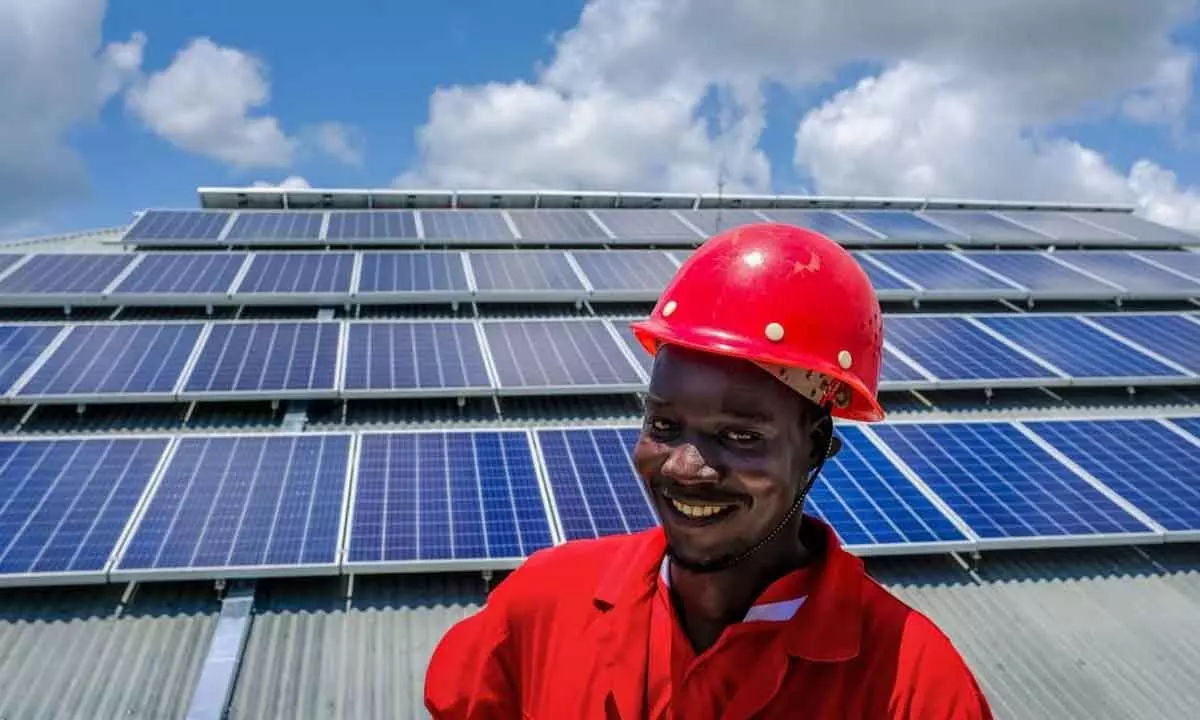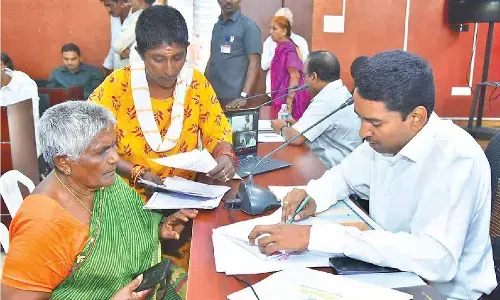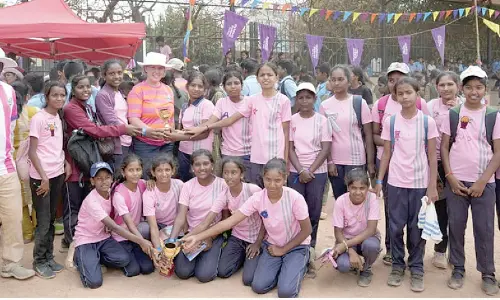UN to catalyse commitments on energy

The action plan on energy commitments include facilitating and nudging nations toward doubling renewables globally
The action plan on energy commitments include facilitating and nudging nations toward doubling renewables globally, electricity for 500 million people and clean cooking for one billion New Energy Compact Action Network launches with coalitions drawing on $600 billion in commitments to support access and transition, starting with Nigeria, Santiago and others
New York: Against the backdrop of a global energy crisis and worsening climate emergency, the UN has taken a major step to catalyse the large-scale action and support needed for the transition to clean, affordable energy for all and net-zero emissions,
with the launch of a Plan of Action by some thirty leading organizations comprising "UN-Energy".
In line with the milestones set out in the Global Roadmap, by 2025, UN-Energy committed to support, facilitate and catalyse, inter alia, 500 million more people to gain access to electricity, and 1 billion more people to gain access to clean cooking solutions, as well as a 100 per cent increase in renewables capacity globally, no new coal power plans in the pipeline after 2021, 30 million jobs in renewable energy and energy efficiency, and doubling annual clean energy investment globally.
Speaking of the interlinked triple crises of energy, food and finance arising from the war in Ukraine, UN Secretary-General António Guterres recently stated that "we can maximize this moment to push for the transformational change our world needs." He added that "now is the time to turn this crisis into an opportunity," to work towards progressively phasing out coal and other fossil fuels, and accelerating the deployment of renewable energy and a just energy transition, to address our worsening climate emergency.
An Energy Compact Action Network was also launched to match those governments seeking support for their clean energy goals with those governments and businesses that have pledged over $600 billion to support these commitments. Coalitions were announced to support energy access and transition in Nigeria and the city of Santiago, Chile, showcasing the Network's potential, as well as to advance or expand coalitions supporting green hydrogen and a stronger role for women in leading and benefiting from the energy transition.
The UN-Energy Plan of Action Towards 2025 rolled out today sets out a framework for collective action by nearly thirty UN and international organizations -- in order to achieve the massive pledge they made at the time of the High-level Dialogue. In line with the milestones set out in the Global Roadmap, by 2025, UN-Energy committed to support, facilitate and catalyse, inter alia, 500 million more people to gain access to electricity, and 1 billion more people to gain access to clean cooking solutions, as well as a 100 per cent increase in renewables capacity globally, no new coal power plans in the pipeline after 2021, 30 million jobs in renewable energy and energy efficiency, and doubling annual clean energy investment globally.
To tackle these large-scale challenges, the Plan identifies seven work areas: 1) scaling up collective UN-Energy action to close the energy access gap and ensure just, inclusive energy transitions that leave no one behind; 2) catalysing multi-stakeholder partnerships by scaling up Energy Compacts, including through the Action Network; 3) growing the momentum, by spearheading a global campaign for SDG 7 action; 4) leading by example, by greening UN-Energy organizations' operations; 5) convening an annual Global SDG 7 Action Forum on the margins of the UN General Assembly High-level Week in September; 6) informing global agenda-setting by providing analytical inputs and policy guidance to key intergovernmental processes; and 7) leveraging the power of data, digitalisation and visualisation for strengthening monitoring, tracking, accountability and the communication of results.
The Plan acknowledges that UN-Energy must tap deep into the capacities of its member organizations and build on their activities and networks that will be essential to operationalise the agenda set out, and that UN-Energy organizations will need to mobilize transformative actions by a huge network of diverse stakeholders in order to achieve the level of impact required on the ground.
Sustainable Energy for All, UNDP and Husk Power Systems are among the partners who announced they are answering Nigeria's call for support in achieving its Energy Compact commitment of bringing electricity to 25 million people by 2023, using solar home systems and mini-grids, ultimately electrifying 5 million homes, schools, hospitals and other public utilities and creating 250,000 new jobs. As part of their own Energy Compacts, SEforALL will support implementation of Nigeria's Energy Transition plan, and UNDP has identified Nigeria as one of its partner countries for its offgrid lighting project, the Africa Mini-grid Programme. Husk Power Systems, extending its market-based support, will build on its six operational mini-grids in Nigeria with 24 more in 2022, 100 more by 2024 and 500 by 2026. Together these plans will accelerate the pace of delivery in Nigeria's decentralized renewable energy sector, bringing electricity and livelihoods to millions.










